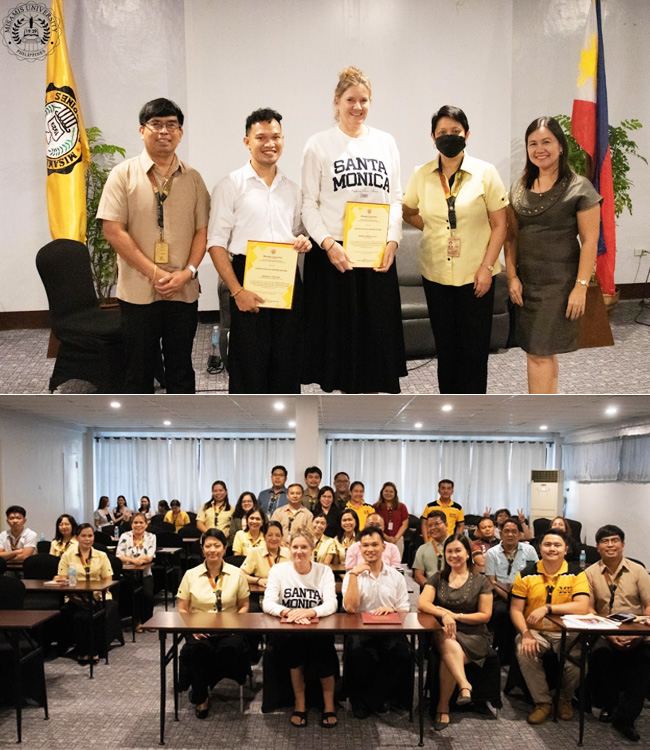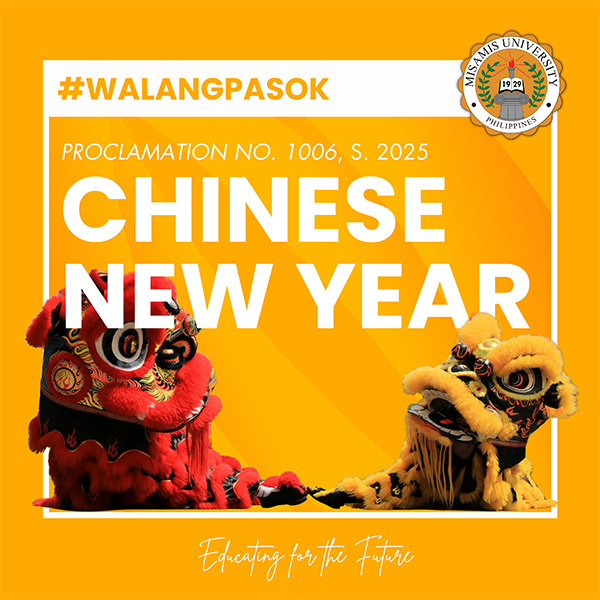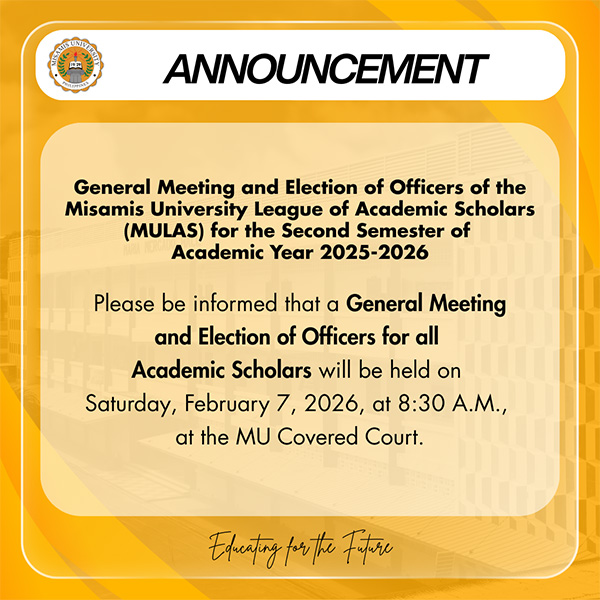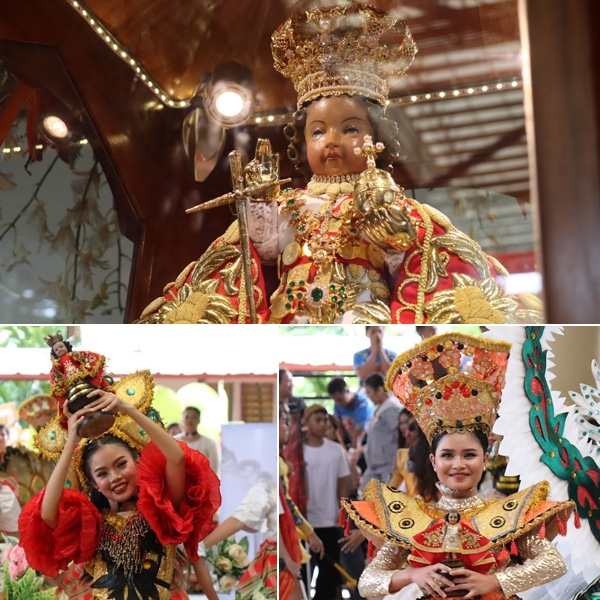
Misamis University Explores Enhancing Internationalization Strategies through German Collaborations
On the afternoon of March 7, 2025, the Internationalization Forum Series continued with Dr. Monica Fröhlich, a representative of the Deutscher Akademischer Austauschdienst (DAAD) or German Academic Exchange Service, and Mr. Gerald G. Aguilar, a DAAD scholar, as resource persons for the event.
This forum focused on internationalization strategies and potential collaborations with German institutions. It was attended by 40 participants, including deans, department heads, and selected faculty members. Dr. Analyn S. Clarin, Director of Curriculum Design and Development, and of Instruction and Evaluation, facilitated the session, providing a platform for participants to exchange insights and discuss their respective colleges' internationalization priorities.
The session began with a survey to assess participants’ priorities for internationalization. The results showed that student exchange ranked as the top priority, with most participants expressing strong interest in this area. Other key priorities included joint or dual degree programs, faculty exchange and training, research collaboration, and strategic partnerships with higher education institutions (HEIs) abroad.
Based on these findings, Dr. Fröhlich elaborated on how DAAD could support MU’s internationalization priorities. As the world’s largest academic funding institution, DAAD offers various opportunities and programs aligned with these priorities. To address them, she focused on three key action fields: student mobility, research collaboration and funding, and internationalization strategy enhancement.
Regarding student mobility, she emphasized its significance and how Misamis University could strengthen its internationalization efforts through exchange programs with German institutions. Additionally, she introduced DAAD-supported scholarship opportunities and shared links to relevant programs for faculty members interested in pursuing graduate studies in Germany.
Regarding research collaboration and funding, she provided an overview of Germany’s research landscape to help participants better understand its academic culture and potential partnership opportunities. She emphasized that business enterprises are the largest contributors to research in Germany, followed by higher education institutions (HEIs), while government-funded research accounts for the smallest share.
She encouraged MU researchers to explore industry partnerships, as German companies are major research funders. Additionally, she shared resources for identifying research collaborators in Germany and highlighted that master’s and PhD research at German universities receive substantial funding.
Regarding internationalization strategy enhancement, Dr. Fröhlich introduced DAAD’s initiatives that support universities in strengthening their internationalization efforts. Under the Dialogue on Innovative Higher Education Strategies (DIES), DAAD offers specialized training programs, including the International Dean’s Course (Africa and Southeast Asia), which equips college deans for leadership in global academic settings.
She also discussed the University Leadership and Management Training Program (UNILEAD), designed to develop leadership competencies among deans and academic heads, and the Management of Internationalization program, tailored for linkage officers. Additionally, she highlighted DAAD’s Training on Internal Quality Assurance, which helps universities align their academic programs with international standards.
During the open forum, Dr. Fröhlich and Mr. Aguilar addressed participants’ questions and provided further insights into potential German partnerships. The three action fields provided valuable insights that helped participants identify key areas of concern in the internationalization of their respective colleges. These insights allowed them to determine where to focus their efforts to enhance their internationalization strategies and directions.
The three action fields highlighted the importance of expanding internationalization efforts. Colleges could engage in education abroad by availing of scholarships, which would, in turn, enhance faculty mobility outside the Philippines. They also had the option to collaborate with industries abroad, not only with higher education institutions (HEIs) but also with industries, as industries are among the primary drivers of research. Additionally, deans and faculty members could participate in international capacity-building training programs provided by DAAD to further strengthen their internationalization efforts.
The three action fields shared by Dr. Fröhlich provided valuable insights that can be incorporated into the college’s strategy and direction. In doing so, the internationalization of their college can grow, expand, and intensify. This session significantly contributed to strengthening Misamis University’s global network and advancing its internationalization initiatives.
The program concluded with the presentation of certificates of appreciation and tokens to the resource speakers by the University President, Dr. Karen Belina F. De Leon, assisted by Dr. Lloyd Ranises, the Linkage Officer. Misamis University deeply appreciated their contributions, as they provided valuable and informative insights to the university’s college leaders and faculty.
Announcement

|

|

|
Photo Gallery
 Turnover of solar energy management from WEGEN to MU
Turnover of solar energy management from WEGEN to MU
|
 MU Sinulog Celebration 2026
MU Sinulog Celebration 2026
|
 MU Winter WonderLand Christmas Party 2025
MU Winter WonderLand Christmas Party 2025
|
Videos

|

|

|















